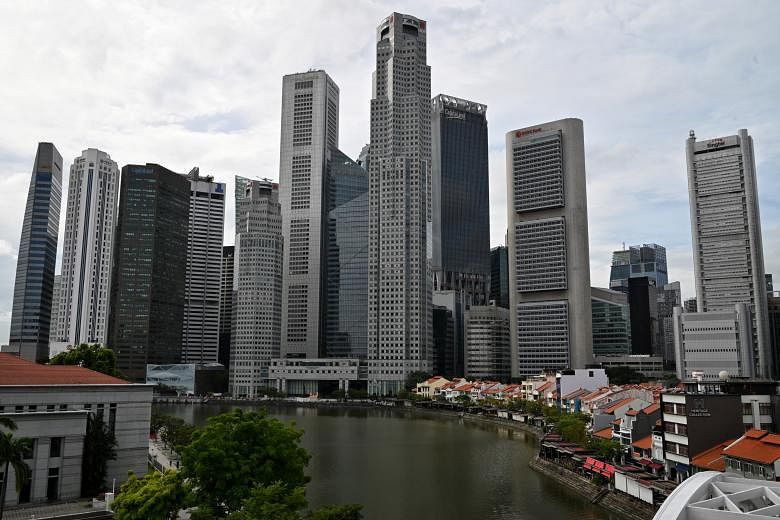SINGAPORE - Small and medium-sized enterprises (SMEs) expect the 2022 Budget initiatives to help with managing costs and improving cash flow, according to a UOB study released on Wednesday (Feb 16).
Firms also wanted an extension of the Jobs Support Scheme, extra funding for digital adoption and an extension of the Wage Credit Scheme.
The Jobs Support Scheme was introduced amid the Covid-19 pandemic to help companies retain local workers, while the Wage Credit Scheme encourages them to share productivity gains with employees by co-funding wage increases.
More companies are also looking for support from the Government this year, in the form of adopting sustainable practices and facilitating export opportunities, the UOB survey noted.
Budget 2022 will be delivered by Finance Minister Lawrence Wong on Friday (Feb 18).
It will reveal the much-anticipated timeline for the planned goods and services tax (GST) hike, though experts had disagreed on when it will take place and whether the increase from 7 per cent to 9 per cent will be done all at once or in two stages.
It should also outline more green measures for a sustainable future, such as the revised carbon tax rate for 2024.
The UOB study found that more small businesses hoped there would be a delay in the increase of the GST, as compared with medium-sized enterprises.
Out of the small companies surveyed by UOB, 34 per cent wanted the hike to be delayed, while only 22 per cent of medium-sized companies had the same desire.
Small firms are defined as those that have less than $10 million in turnover, while medium-sized companies have turnover of $10 million to $100 million.
The study also found that by sector, firms in professional services and community and personal services were the most concerned by the GST increase and wanted it delayed.
Companies in business services wanted help with overseas expansion, while those in construction and infrastructure hoped the Government could facilitate export opportunities for them.
UOB conducted 800 interviews with owners and management level executives from SMEs with revenue of less than S$100 million, fewer than 200 employees, and with more than 30 per cent local shareholding.
The study was done between December last year and early January this year.
It also found that while firms were aware of Budget initiatives, there was a gap between their knowledge and actually applying for the schemes.
Companies knew about schemes to help them digitalise, such as SMEs Go Digital, the Enterprise Development Grant, SME Working Capital Loan and the Adapt and Grow scheme.
More medium-sized enterprises also actually applied for the schemes.
UOB also found that by sector, firms in wholesale trade showed greater awareness of Budget initiatives, while those in consumer goods showed the lowest awareness.
As for the aftermath of the Budget, firms expect that the measures to be announced will help them to improve their cash flow and help manage costs.
Of all sectors, firms in wholesale trade were the most optimistic that Budget initiatives could help them upskill their staff, improve customer demand, help them retain employees, initiate new projects or investments and better manage their debt obligations.


